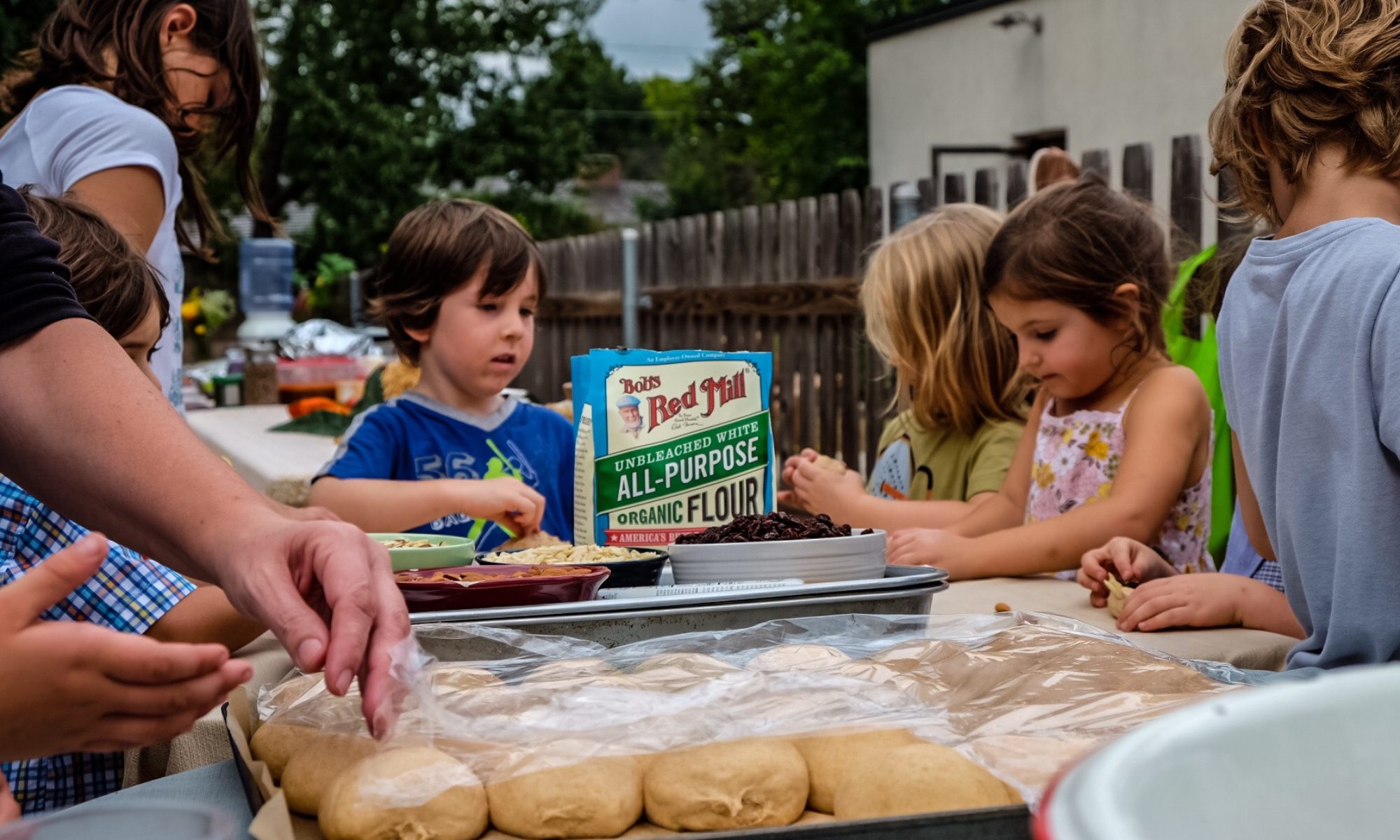
It is a sweet moment when a little one brings over a play bowl and spoon to offer me a bit of “chocolate soup”. This moment is usually followed by several additional courses with all of the bowls, plates, or cups being carefully set before me to enjoy. The child chef may be eagerly awaiting my tasting and praise of each dish, or he is bouncing back to the play kitchen and mixing up the next dish before I even say “thank you.” Either way, he is usually beaming and, I imagine, full of pride for what he has created and served for my pleasure.
Don’t we feel that way as adults, sometimes? We may have worked for weeks on a project for a new client, or spent all day in the kitchen cooking a big meal for a family celebration. We might have learned a new hobby and finally have something to show for all our trial and error. Hopefully in those moments we are experiencing the same pride that I imagine my little one feels when he presents his pretend feast. Praise is not needed (though always appreciated), our inner sense of fulfillment being enough to leave us brimming over with gratification.
The fact of the matter is that we aren’t always brimming over with pride or joy about our work, and often about caring for our own homes. It’s a practical part of life, after all. It can be mundane; it can even feel like a dirge when we are overwhelmed by busy-ness. But it can be relaxing, calming… even joy-filled. In his article Practical Activities with the Young Child, Steven Spitalny gives insight on the importance of meaningful work with children and finding enthusiasm in our daily grind with them. Whether side by side or directly involved in caring for the home or creating something, they cannot help but imitate us.
“All learning involves an engagement of the will. Learning requires effort. With young children, the will is directly connected to the sensory activity, without the mediating of thinking or understanding – this is the process of imitation. It is a special art to engage the child’s interest and attention that adults must learn. When the adult takes up the tasks that need to be done with joy and with enthusiasm, with their own engaged will, then the child’s attention is more likely to be present on the task as well. Tasks attended to with care and love engage the child’s interest much more than tasks done in a disinterested or even resentful way.” (Spitalny)
Slowing down and being intentional with our domestic work makes space for joy. It gives us a moment to visualize our child- in the far distant future- creating his own home, with all the love and care that will go into it. Appreciation of our home life deepens, and caring for it becomes much more fulfilling. Bringing our children into the fold of daily housework enriches our relationships and invites them into a socially responsible world. It teaches them about the workings of daily life- what kind of activities will fill their time when caring for that future home- and how we all work together.
“Domestic activities, housework, taking care of the surroundings also take us out of the personal and into the social realm. Caring for one’s surroundings is a social gesture. We work together and for each other! The basis of our community life is the home, and social responsibility starts there.” (Spitalny)
Providing the children at Rose Rock with time to play freely within a home environment gives them an abundance of meaningful work to bring into their play. One example is the homemade, family-style meals that our cook, Ann, makes. Throughout the day the children catch glimpses of Ann at work. Poking in to ask her what we are eating for lunch, they see her whipping up eggs for a frittata or spicing up a soup on the stove. They help her bring food to the tables, and dishes to the kitchen when meals are finished. They dig into bread dough to make rolls on Tuesdays, and periodically chop vegetables or fruit. The children are given much to imitate in the makings of our nourishing meals.
This past winter, Ann outdid herself with dishes like an all-from-scratch chicken pot pie, and beef and barley stew. We’ll be sad to part from these favorites, but our taste buds are watering for new dishes on the spring menu, too. Have a look at what your children will be helping to create this spring.
| Week A | Week B | |
| Monday | AM Snack: Veggie frittata & seasonal fruit
Lunch: Rice & chicken pilaf w/ seasonal veggie PM Snack: Nut butter, crackers, fruit |
Veggie frittata & seasonal fruit
Rice & bean tortilla casserole w/ seasonal veggie Nut butter, crackers, fruit |
| Tuesday | AM Snack: Yogurt, granola & fruit
Lunch: Borscht w/ seasonal veggies & rolls PM Snack: Crackers, cheese & pickles |
Yogurt, granola & fruit
Soup of the day w/ seasonal veggies & foccaccia Crackers, cheese & pickles |
| Wednesday | AM Snack: Rice pudding w/ seasonal fruit
Lunch: Waldorf salad, crackers & seasonal veggies PM Snack: Nuts & dried fruit |
Rice pudding w/ seasonal fruit
Greek pasta salad, olives & veggies Nuts & dried fruit |
| Thursday | AM Snack: Biscuits, sausage & seasonal fruit
Lunch: Stromboli w/ cucumber salad PM Snack: Veggies, pretzels & cheese |
Biscuits, sausage & seasonal fruit
Broccoli nuggets & mashed potatoes Veggies, pretzels & cheese |
| Friday | AM Snack: Muffins & seasonal fruit
Picnic Lunch (bring-your-own) PM Snack: Popcorn, nuts & veggies |
Muffins & seasonal fruit
Picnic Lunch Popcorn, nuts & veggies |





